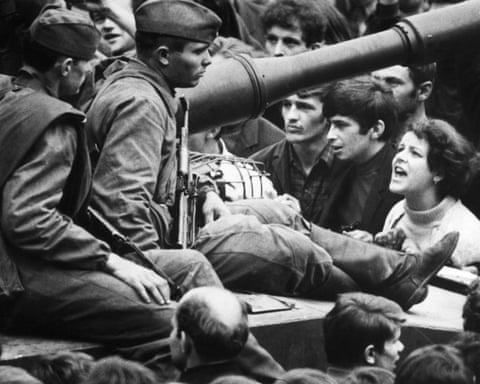The Illegals

I’d heard rumours of this story a while time back: but nothing prepared me for the reality presented in The Guardian correspondent Shaun Walker’s new book, The Illegals: Russia’s Most Audacious Spies and the Plot to Infiltrate the West. Drawing on copies of KGB files made by a dissident Soviet archivist who defected to Britain in 1992 that are now open to the public, Walker explains how the KGB used spies from its co-called ‘illegals’ programme – Soviet citizens who had spent years training to pose as genuine Westerners.
These spies were initially deployed to inflitrate oppositional movements in Western countries in order to help identify potential Soviet agents. Eventually, however, the programme’s success led to its use within both Soviet bloc countries and the USSR itelf, in the latter case in order to test the loyalty of suspected dissidents
Perhaps the most spectacular example of their deployment, however, took place during the 1968 Prague Spring in Czechoslovakia. Here’s how Walker describes things:
‘The [Czech Spring’s] openness terrified Soviet leader Leonid Brezhnev and his KGB chief, Yuri Andropov, but in the openness Andropov also saw an opportunity for his spies to infiltrate. They could easily pass through the liberal Czechoslovak border regime with their fake western passports.
Five of the new arrivals were told to visit restaurants, museums, galleries and hotels and find opposition-minded Czechs. If necessary they could pay for useful political information, gently hinting that the money might be coming from western intelligence. Some were tasked with befriending Czech newspaper editors and goading them into printing anti-Soviet statements to further escalate tensions. Others buried a fake cache of American weapons to ‘prove’ that the reform movement was backed by the United States.’
With or without these helpful inducements, before long Soviet and Warsaw Pact tanks had crossed the Czechoslavak border in order to ‘liberate’ the country from the scourge of ‘anti-communist’ forces, reformist Communist Party leader Alexander Dubček, a leading advocate of ‘socialism with a human face’ had been quietly removed and the Prague Spring had been effectively silenced.
To read the story of the ‘Ilegals’ role in the crushing of the Czechoslavak reform movement is to be reminded of the tactics deployed at the time by the strongmen in the Kremlin. And also still, in essentials, by Russian President Vladimir Putin and his coterie, as Walker explains:
Vladimir Putin has spoken on numerous occasions about [the ‘Illegal’s’] great achievements . . . they are portrayed as heroic warriors, uncovering secrets in the West to help the motherland.“Illegals are built in a particular way, with strong morals and a firm character,” said Putin in 2017. “We are proud of them.”
Putin’s pride in their activities speaks volumes about how he views his current standoff with the West of Ukraine. Who knows? Perhaps this story’s next episode will reveal the Illegal’s ‘proud’ achievements since the Russian invasion of Ukraine.